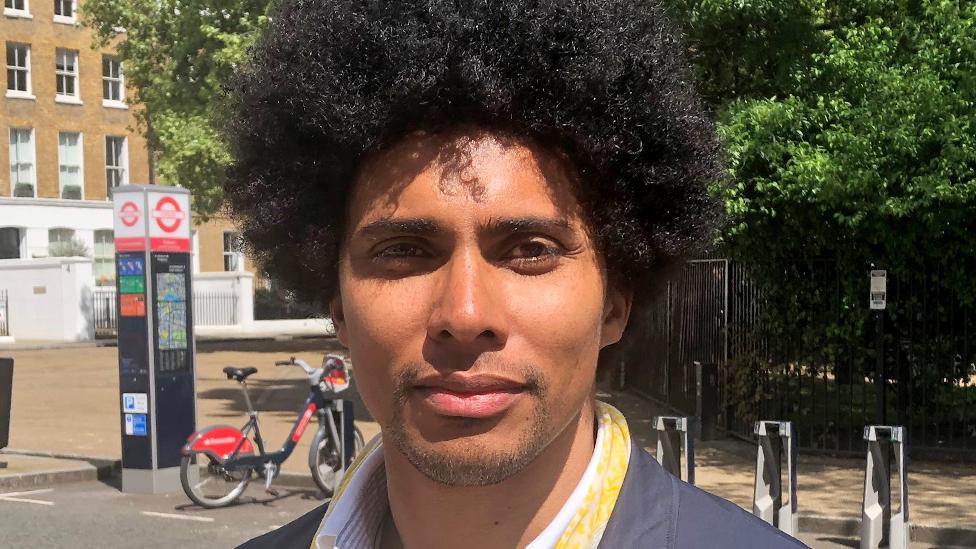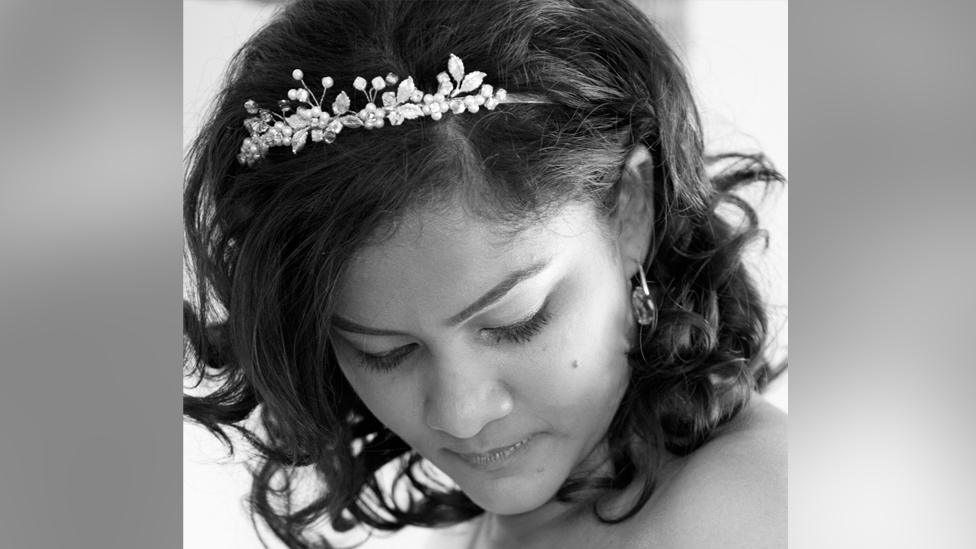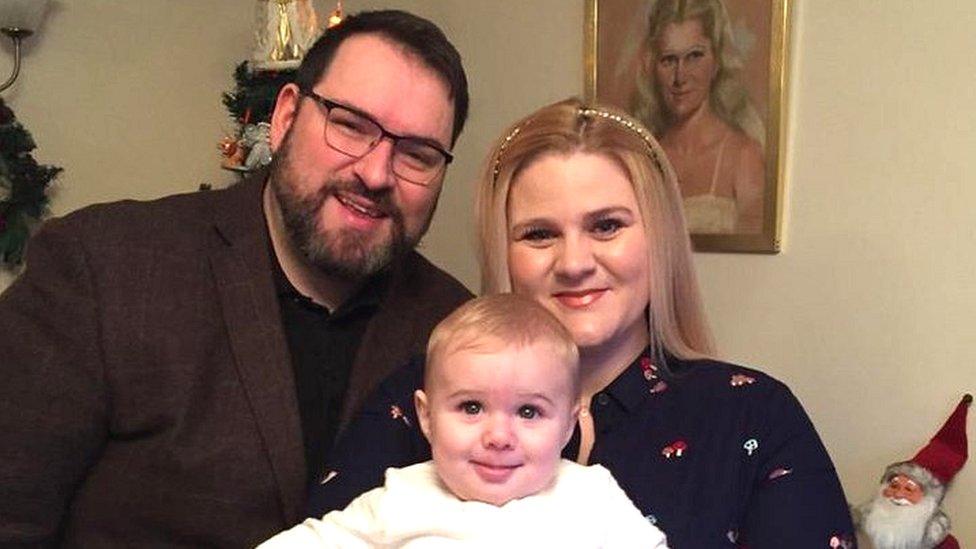Court says widower can use embryo made with late wife
- Published

A widower has won a landmark legal case in the High Court, to allow him to try for a baby with a surrogate, using the last remaining IVF embryo he created with his late wife.
Ted Jennings, 38, has argued he has the blessing of Fern-Marie Choya, who died, aged 40, in 2019, while pregnant with their twins.
The court ruled he did not need written consent from Ms Choya to proceed.
The Human Fertilisation and Embryology Authority had rejected his request.
It will carefully consider the judgement before deciding whether to appeal, it says.
What happens when embryos are frozen?, external
Mrs Justice Theis said:
she was "satisfied" Ms Choya had consented to use of the embryo in the event of her death
Ms Choya had not been given sufficient opportunity to give the consent in writing because a form completed during the IVF (in vitro fertilisation) process was "far from clear" about how to do so
HFEA "may want to consider" whether the form should be reviewed
Ms Choya, an accountant, had died "tragically and without warning", in February 2019, just 18 weeks into her pregnancy, after developing complications and suffering a uterine rupture
denying Mr Jennings the opportunity to use the embryo would be "significant, final and lifelong"
his case would not "open any floodgates"
she could "dispense with the requirement for written and signed consent in this limited situation"

Mr Jennings, from Highbury, north London, had told the judge he did not recall he or his wife having any "negative emotions towards parenthood in the event of using a surrogate, donated embryos or adopting a child".
"Our emotional journey was going from the helplessness of the infertility compounded by the feeling of unjustness given all the other medical issues already faced," he said.
"We eventually got to the position of accepting that having given IVF our best shot, this would be the last time and the final embryo would be saved for surrogacy."
The couple had discussed what should happen if either died or there was a risk of either Ms Choya or the twins dying, Mr Jennings told Mrs Justice Theis, and Ms Choya had been "adamant" the girls should be saved if there had to be a choice between her and them.
The couple, who moved to the UK from Trinidad, had two previous pregnancies that ended in miscarriage.
They later tried IVF and remortgaged their home to pay for private treatment.
- Published28 February 2022

- Published18 June 2022